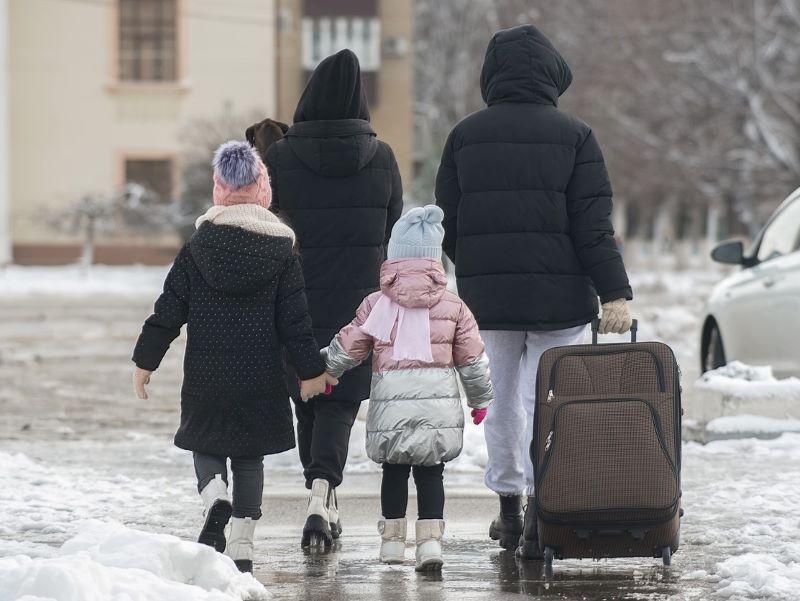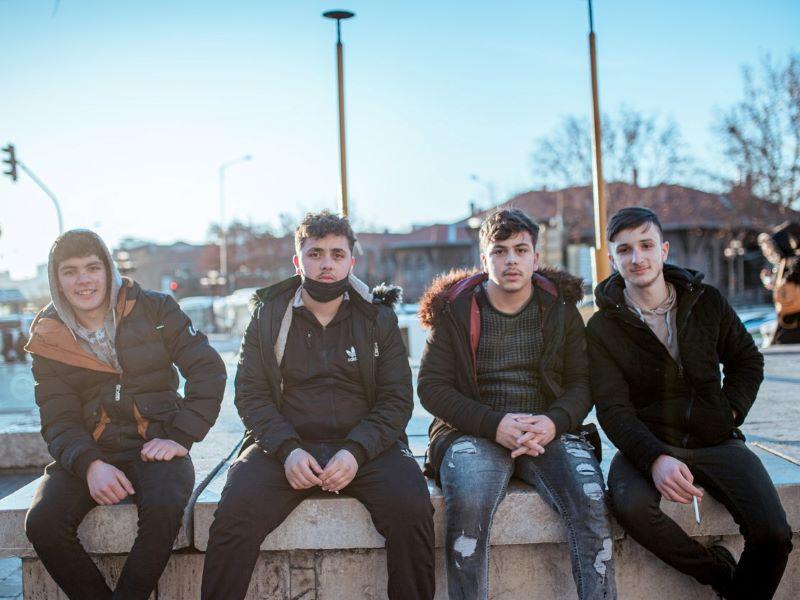Stories about the challenges that migrant and refugee women face in their host countries compel many to want to help. In my case, an encounter with a refugee woman I met on Facebook Marketplace pushed me to take action. I had arranged to collect a plant from her home, and she brought it out to me in front of her garage and asked for cash payment, but, assuming that a bank transfer would be acceptable, I hadn’t brought enough with me. I felt my stomach drop as she explained that she didn’t have a personal bank account to receive my payment. Tears started streaming down her face as she glanced back at a group of men sitting and conversing in the garage, and I understood the situation.
Many migrant and refugee women’s journeys are fraught with uncertainty, fear and sometimes danger. As they arrive in new lands seeking security, they are confronted with challenges and barriers like lack of language skills, cultural differences, social isolation, financial dependency and lack of recognition of their previous education and work experience. For mothers, these challenges are compounded by the pressure of raising a family in an unfamiliar terrain.
Gendered socialisation (a process in which individuals are taught to conform to specific roles based on their gender) of women, especially among culturally and linguistically diverse communities, leaves many lacking the confidence to pursue work opportunities. It is an educational script: girls are often guided to be empathetic and prefer stereotypically feminine things, while boys are encouraged to pursue strength and adventure. This shapes not only personal preferences but also influences professional aspirations and acceptable conduct within society. It is perpetuated by key societal educators: parents, schools, the media and peers, often without conscious awareness.
In a world where barriers often obstruct the paths of those seeking refuge and a better life, finding ways to create, teach and enable skills development, employment opportunities and economic empowerment among at-risk migrant and refugee women is imperative to build social and financial resilience.
- Campus resource collection: What universities can do to assist refugees
- Practical ways to develop a comprehensive university ‘sanctuary’ programme
- Six steps to improve access to UK higher education for displaced students
Playing to my strengths as a professor of construction and disaster management, I created a tailored course for women to obtain a Certificate II in construction, with support from the university of Newcastle, TAFE and Newcastle Permanent Charitable Foundation. The Certificate II in construction provides foundational knowledge and skills for the construction industry. It covers practical skills such as using power tools, working with building materials and reading and interpreting plans. The course is designed to prepare students for a career in construction, offering a pathway to an apprenticeship and further study opportunities. In doing so, I followed several guiding principles that would be useful when developing similar programmes to provide broader access to many fields of study and vocational learning:
- Identify and address the barriers to participation in education and training that your target demographic faces. Then design the programme to minimise or remove those barriers. For example, we ensured that classes were conducted during school or other child-free periods.
- Identify who, outside the classroom, will be instrumental to the programme’s success. This could be industry, government and local advocacy organisations, especially those that will help to build credibility for the programme among the target cohort’s community such as Zara’s House, a local not-for-profit organisation which serves as a welcoming centre for refugee women and children, offering services such as English and citizenship lessons, cultural activities and wellness classes.
- Do not assume you’ll reach your target cohort through typical student recruitment marketing channels. Our outreach programmes included keynote presentations at several community events attended by women we wanted to reach. For example: the Multicultural Expo organised by Hunter Multicultural Communities and an Arabic women’s meeting held at the Jesmond Neighbourhood Centre that was organised by Mosaic Multicultural Connections (another non-profit organisation for settling refugees in Newcastle).
- Include a practical work experience component. The women who took part in our programme expressed gratitude that, for the first time since arriving in Australia, they got some insight into a typical work environment.
- Explore opportunities for participants to gain employment within the organisations that offer the placements upon completion of the course.
- Provide practical skills training such as workshops on CV building, confidence in the workplace and job interviews.
- Connect participants with relevant industry mentors.
- Provide support and guidance if course participants need to navigate sensitive cultural issues such as entrenched gender roles in care and domestic responsibilities or, in our case, how to navigate a male-dominated industry.
The most inspiring aspect of this University of Newcastle, Australia project is the impact it has had on the lives of the women who participated. It is not just about finding a job; it is about building confidence and helping women reclaim independence, break free from a cycle of dependency, and build a better future for themselves and their families. So far, 18 participants have taken part, with four from the first cohort pursuing further education such as a Certificate III that will enable them to get apprenticeships, and the other 14 are onboarding with the registered training organisation for job opportunities.
As we know, global human displacement is rising to record levels. Australia provides refugees with resettlement opportunities through the United Nations High Commissioner for Refugees. Among the young people arriving in Australia, 34 per cent prefer to resettle in the state of New South Wales. Furthermore, 11 per cent of these individuals choose to settle in the regional areas of New South Wales. As we welcome new immigrants and refugees, I hope that this programme continues to provide culturally responsive outcomes that dismantle systemic barriers and challenge the societal norms that perpetuate inequality.
By empowering migrant and refugee women to pursue careers in construction, we are not only diversifying the workforce but also creating a more inclusive and equitable society.
Temitope Egbelakin is a professor of construction and disaster management at the University of Newcastle, Australia.
If you would like advice and insight from academics and university staff delivered direct to your inbox each week, sign up for the Campus newsletter.




comment2
(No subject)
(No subject)